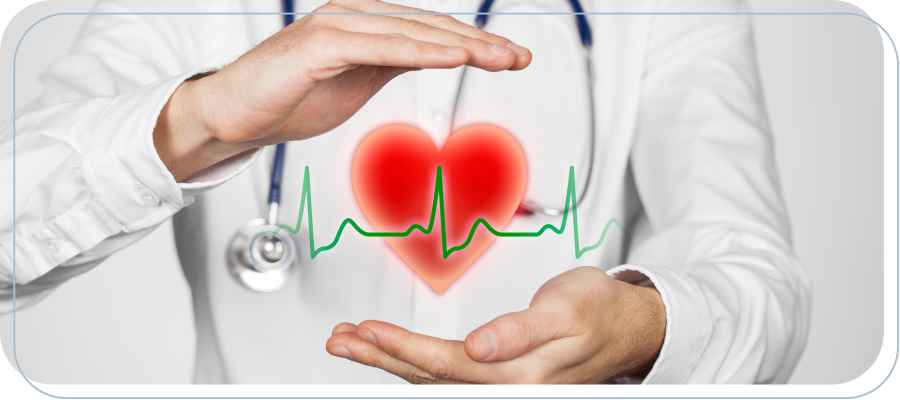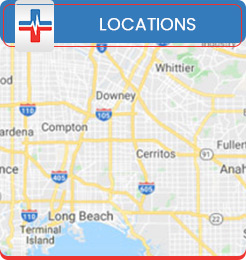EKG for Early Detection and Heart Monitoring in Paramount, CA
An EKG, or electrocardiogram, is a simple, non-invasive test that plays a vital role in the early detection and ongoing monitoring of heart health. By measuring the electrical signals of your heart, Dr. Usha Rani K. Reddy, M.D., can quickly identify a range of conditions, from irregular rhythms to signs of a past or current heart attack. This valuable diagnostic tool provides a rapid and clear picture of your heart’s function, empowering you to take proactive steps toward maintaining cardiovascular wellness. For more information, please contact us. We are located at 8311 Alondra Blvd, Paramount, CA 90723.


Table of Contents:
What exactly does an EKG measure, and how does it help in understanding my heart’s health?
What specific heart conditions or abnormalities can an EKG help detect in their early stages?
Is a single EKG sufficient, or is a baseline EKG needed to monitor changes over time?
How does a stress EKG differ from a resting EKG, and which is more effective for early detection?
What are the limitations of an EKG, and what heart issues might it miss that would require other tests?
An EKG, or electrocardiogram, is a non-invasive medical test that measures the electrical activity of the heart. Every time your heart beats, it generates tiny electrical signals that can be detected by electrodes placed on your skin. The EKG machine records these signals, translating them into a graph of waves and spikes. This graph, called an electrocardiograph, provides a detailed picture of your heart’s rhythm and rate. By analyzing the patterns on this graph, doctors can determine if your heart is beating too fast, too slow, or irregularly. It essentially gives a “snapshot” of your heart’s electrical health, helping to identify any underlying issues with its rhythm or function. The test is painless, quick, and a foundational tool in cardiology.
An EKG is a powerful tool for detecting a range of heart conditions and abnormalities. It can identify arrhythmias, which are irregular heart rhythms, and diagnose a myocardial infarction (heart attack) by showing patterns of damage to the heart muscle. An EKG can also reveal signs of an enlarged heart (cardiomyopathy) or a congenital heart defect. It is also effective at identifying electrolyte imbalances, such as abnormal potassium levels, which can affect heart function. While it may not catch every single issue, an EKG is highly effective at providing a quick, initial assessment of the heart’s electrical health. This can be crucial in catching serious conditions early, allowing for timely intervention and treatment.
While a single EKG can be incredibly useful for diagnosing acute issues like a heart attack or a sudden arrhythmia, a baseline EKG is essential for long-term heart health monitoring. A baseline EKG, taken when you are healthy, provides a normal “fingerprint” of your heart’s electrical activity. Subsequent EKGs can then be compared to this baseline to identify subtle changes or new abnormalities that may have developed over time. Without a baseline, it can be challenging to determine if a specific pattern is a new issue or simply a normal variation for that individual. Therefore, while a single EKG provides an immediate assessment, regular EKGs tracked against a baseline are the most effective way to monitor for subtle changes and detect progressive heart conditions.
A resting EKG is performed while you are lying down or sitting still. It measures your heart’s electrical activity at rest and is useful for detecting arrhythmias or signs of a past heart attack. A stress EKG, also known as an exercise EKG or treadmill test, is conducted while you are exercising on a treadmill or stationary bike. The purpose is to see how your heart responds to physical exertion. Because a resting EKG may appear normal even in the presence of significant blockages, a stress EKG is often more effective for early detection of coronary artery disease. This is because exercise increases the heart’s demand for oxygen, which can expose blockages that are not apparent at rest. The stress EKG can reveal signs of reduced blood flow to the heart muscle, making it a more sensitive test for certain conditions.
While an EKG is a valuable diagnostic tool, it has limitations. It primarily measures the electrical activity of the heart and may not provide a complete picture of the heart’s structure or blood flow. For example, a resting EKG might miss coronary artery disease if the blockages are not severe enough to cause symptoms at rest. It also cannot assess the mechanical function of the heart, such as how well the valves are working or the strength of the heart muscle’s contractions. Issues like congestive heart failure or valvular heart disease often require additional tests. Other tests that are often used to supplement an EKG include an echocardiogram (a heart ultrasound), a stress echocardiogram, or an angiogram to visualize the coronary arteries. These complementary tests provide a more comprehensive view of the heart’s overall health and function. For more information, contact us. We are located at 8311 Alondra Blvd, Paramount, CA 90723. We serve patients from Paramount CA, Norwalk CA, Huntington Park CA, Lynwood CA, Gardena CA, and surrounding areas.
Check Out Our 5 Star Reviews






